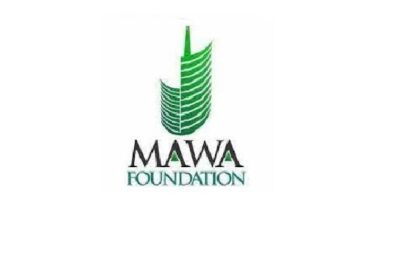Our approach to communicating Climate Change has to adopt dialogue and negotiation, and not only focus on campaign and advocacy.
This will facilitate trust-building, empowerment, efficiency, accountability, and sustainability among community members.
It will further allow for effective participation that will create room for both development agents and communities to learn, re-learn, and have an understanding of the real issues at hand.
At MAWA-Foundation, in our Climate Change research, and many other interactions with communities, development agents, researchers, advocates, and leaders of NGOs, we found deficiencies in the way we communicate climate change.
And, the deficiencies are found in the poor communication strategies. Often, there is no participatory communication approach in the design, the communities we target in our advocacies are completely left out of the communication design. What we do is noise in the pretense of carrying out climate justice advocacy and campaigns.
The approach of not allowing dialogue and negotiation to become the core pillars of Climate Justice Education is a reason many persons in both rural and urban communities keep doubting the reality of Climate Change existence.
Until we adopt a dialogue and negotiation approach that will allow effective participation for both the development agents and communities for a mutual learning process on the issue, we are not likely going to have the kind of result we anticipate.
In many communities we have visited in the course of our Climate Justice Advocacies, we found that they do not have an understanding of how Climate Change is responsible for heatwaves, flooding, and droughts that are affecting crops, livestock, and livelihoods, leading to poverty.
This knowledge deficit is a result of the non-participation of the people in communication design and implementation.
Without addressing the challenges of Climate Change Education, Advocacy, and Campaigns, that do not allow for effective participation in the development, many of our interventions will fail.
Until we allow for participation that will facilitate dialogue and negotiation, we are not likely to have an empowered community (citizens) and build trust that will inspire project efficiency and sustainability.
World Leaders and Development Agents must act to make the systemic changes that will ensure dialogue and negotiation in all climate change interventions.
This is most fundamental because it will create the knowledge and understanding for success and sustainability in our interventions.
The idea of sitting at a roundtable to make decisions that affect communities without allowing room for their participation will not facilitate the trust-building and empowerment needed to address the issues affecting them.
As we continue to amplify voices and encourage action in the climate movement targeting mitigation and adaptation, we must have a better understanding that communication and advocacies are not just about information dissemination, but negotiation and dialogue. READ ALSO:
- Birthday Tribute: Dr Zacch Adedeji, The Sophisticated Leader
- Chelle To Arrive Nigeria Sunday With Three Assistants
- Police raise alarm over rising missing persons cases in Ogun
- CAF Increases CHAN 2024 Prize Money By 75%
- Tinubu celebrates NNPCL Boss, Mele Kyari at 60
In our Climate Justice Advocacies and Activism, we must stand side by side and allow for participation with the people we are designing intervention strategy.
This is the only way we will facilitate learning and dialogue among ourselves to empower the community, build trust, ensure success and sustainability.
Many communities in Africa are leading the way toward better Climate Justice and a sustainable future using Indigenous Knowledge. We must listen and work with them in our search to find solutions to Climate mitigation and adaptation.
In our Climate Justice Education, Advocacies, and Campaigns, we must work with communities and strategic stakeholders using a participatory approach.
That will influence major policy decisions, aimed at addressing the climate crisis and preventing further harm to the environment.
Audu Liberty Oseni,
Coordinator, MAWA-Foundation


